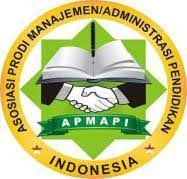New Era of Higher Education Digital: Transformation and Information System Management
DOI:
https://doi.org/10.21009/improvement.v11i2.49441Keywords:
Digital Transformation, Enterprise Resource Planning, Higher Education, Management Information SystemAbstract
Abstract: This article aims to analyze digital transformation and the implementation of Management Information Systems (MIS) in higher education, particularly in the post-pandemic era. Through the Systematic Literature Review (SLR) method, the article reviews 10 relevant studies to understand the impact and challenges of technology implementation, such as Enterprise Resource Planning (ERP), in higher education institutions. The COVID-19 pandemic has accelerated the adoption of digital technologies, but many universities, especially in developing countries, face infrastructure and resource limitations. The article finds that while MIS can improve operational efficiency and learning, its implementation is still hindered by high costs and a lack of technical skills. The research gap identified is the absence of a holistic and sustainable implementation model in developing countries. As a novelty, the article proposes a collaborative model for MIS implementation, allowing multiple universities to share resources and knowledge. Furthermore, the article recommends the development of comprehensive digital transformation strategies that not only focus on technical aspects but also involve human resource management and data-driven decision-making. With this approach, higher education institutions can be better prepared to face future challenges and create a more inclusive and efficient educational experience.
Downloads
Published
How to Cite
Issue
Section
License
Copyright (c) 2024 Raden Sintho Sukorini, Arita Marini, Rihlah Nur Aulia

This work is licensed under a Creative Commons Attribution-NonCommercial-ShareAlike 4.0 International License.
Authors who publish with this Journal agree to the following terms:
- Author retain copyright and grant the journal right of first publication with the work simultaneously licensed under a creative commons attribution licensethat allow others to share the work within an acknowledgement of the work’s authorship and initial publication of this journal.
- Authors are able to enter into separate, additional contractual arrangementfor the non-exclusive distribution of the journal’s published version of the work (e.g. acknowledgement of its initial publication in this journal).
- Authors are permitted and encouraged to post their work online(e.g. in institutional repositories or on their websites) prior to and during the submission process, as it can lead to productive exchanges, as well as earlier and greater citation of published works.
-
Users/public use of this website will be licensed to CC BY-NC-SA (Attribution & Non-Commercial-ShareAlike)


